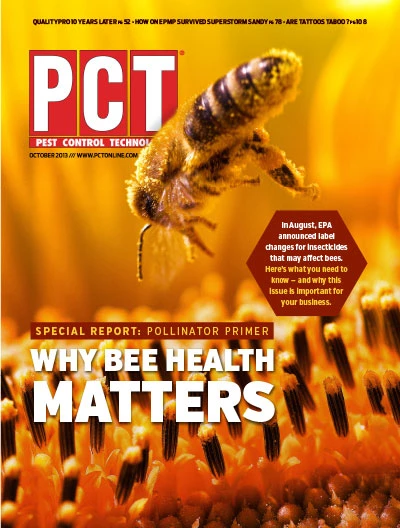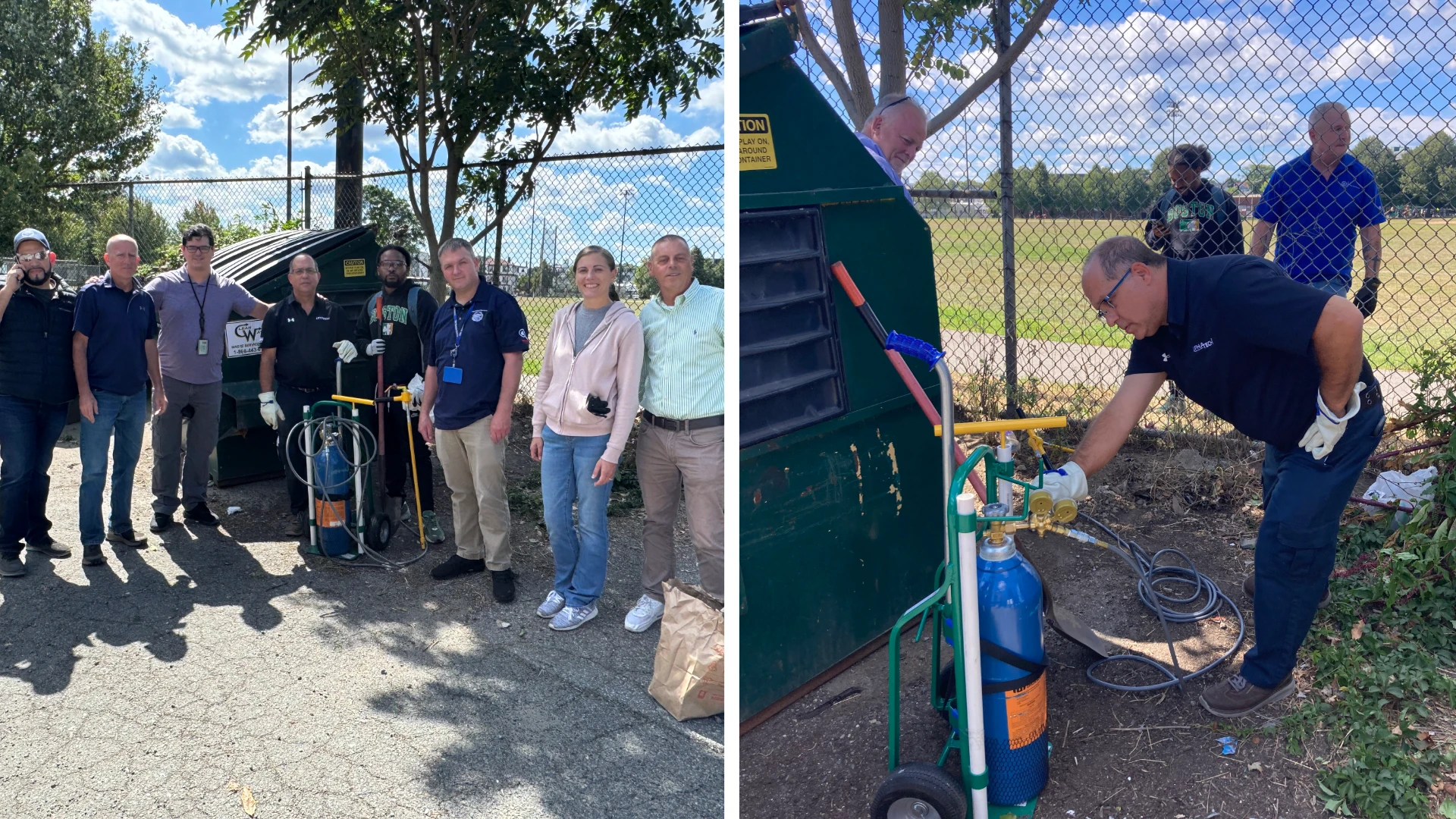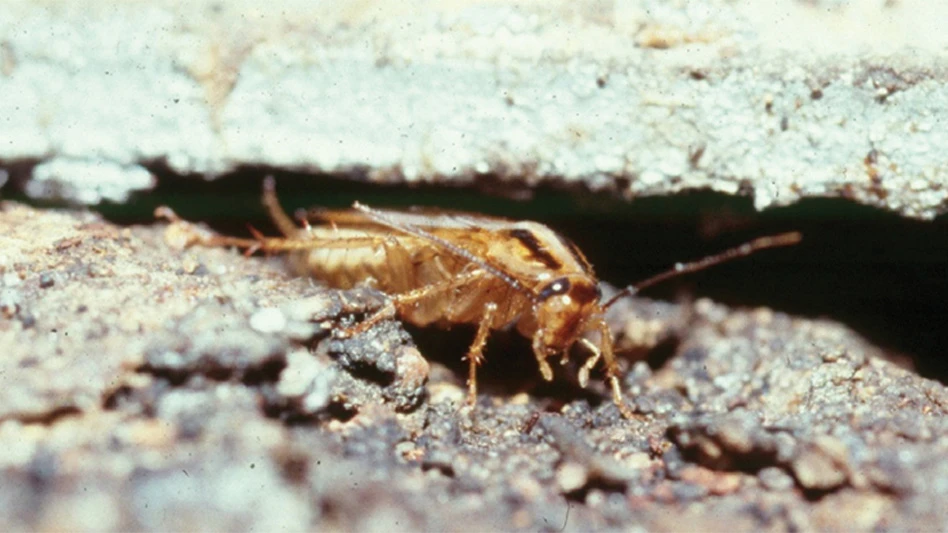 If you live long enough, chances are at some point in your life you’ll arrive at a crossroads. When Gene Chafe found himself in that position, he took off and never looked back — quite literally.
If you live long enough, chances are at some point in your life you’ll arrive at a crossroads. When Gene Chafe found himself in that position, he took off and never looked back — quite literally.
It was the summer of 1978, the same year a catastrophic blizzard ripped through a wide swath of New England, including Chafe’s hometown of Braintree, Mass. At 23, Chafe had returned home from a year of “bumming around” Europe after graduating from college with a degree in English. He wasn’t sure what he wanted to do next. After a few months working as a technician for the pest control business that his family had previously owned, Chafe hopped on his Honda Goldwing motorcycle and high-tailed it across the country, with not much in the way of a final destination.
“I had come back to the U.S. and wasn’t terribly sure what I was going to do — go to grad school? Work?” Chafe said. “I decided I was young and single, so I hopped on the motorcycle with a couple of thousand dollars.” He left in May, and ran out of money in Phoenix, Ariz. “I figured, ‘This would be a good place to overwinter.’”
Needing to put food on his table, Chafe took a job with Rose Exterminator Company, in what became a true springboard for a long and successful career in the pest control industry. Now the general manager for Senske Pest Control, headquartered in Kennewick, Wash., and a major backer and proponent of industry involvement on legislative issues, Chafe has found success in channeling a can-do attitude that was forged at an early age.
“Gene has been in the professional pest management industry more than 30 years,” said the National Pest Management Association’s Gene Harrington — a good friend of Chafe’s. Harrington added that during almost 20 years at Senske, Chafe has dramatically grown the company’s pest control operation, and has tirelessly offered his time and expertise to other PMPs.
Early Inspiration. Chafe is a third-generation pest management professional, though that wasn’t always the plan.
A Canadian immigrant, Gene’s grandfather Cyril Chafe, Sr., started his own pest control business — C.A. Chafe Exterminating Company — in 1929 in Quincy, Mass. Shortly after World War II, Gene’s father Cyril Chafe, Jr., began working at the company. Naturally, at a young age, Gene began picking up odd jobs at the company. “I think from the time I was 8 years old, I started doing chores around the business,” he said. “It being a family business, it was a convenient summer job. I originally went to (college) to be a school teacher. I had no intention of being in the pest control business.”
Around that time, Gene’s circumstances underwent a dramatic upheaval. His father suffered an untimely death, forcing a sale of the business to some family friends. Gene remained on board to work for a brief period of time before his cross-country trek to Arizona. He found early success when landing at Rose Exterminator Company. At the time not having a clear path in front of him, Gene said that his personality led him into the service business. “What drew me back to the pest control industry was the idea that I’m a people person,” he said. “I like solving problems.”
Early on at Rose, Chafe met and worked with a man who would grow to be influential on his career: Lee Zusman.
Zusman was the president of Rose Exterminator Company, and gave Chafe several opportunities that allowed him to flourish early on in his career. “I still find myself quoting Lee on a number of things,” Gene said. “Lee was a very hands-on kind of guy, he would work with the management, branch managers. He was a patient guy…When you’re a young guy, you don’t necessarily want to be told certain things. He had a great influence on me.”
 After working as a technician for about eight months in Phoenix, he met his wife, Lori. Gene jokingly says he was soon “tricked” into moving up to Flagstaff, Ariz., where a supervisory promotion awaited him. Gene was handed a box full of paperwork detailing the accounts he’d be servicing in the new city.
After working as a technician for about eight months in Phoenix, he met his wife, Lori. Gene jokingly says he was soon “tricked” into moving up to Flagstaff, Ariz., where a supervisory promotion awaited him. Gene was handed a box full of paperwork detailing the accounts he’d be servicing in the new city.
The new territory stretched from Northern Arizona into Nevada, Utah and New Mexico. “I had accounts like the Grand Canyon Lodges, Navajo Nation — it was quite an eye-opener for a guy from Boston,” he said. The experience in Flagstaff, running remote routes without much in the way of nearby, available help, taught Chafe much about being independent and learning to solve problems.
Chafe worked from Flagstaff for several years. He and Lori had two children, Sam and Molly, before a new career opportunity presented itself. In1991, Rose Exterminator Company was purchased by a large national company. After working for the new buyer for a few months, Chafe decided to consider other job opportunities.
He was soon recruited by Chris Senske of Senske Services. “I came [to Washinton] in the winter of 1990, chatted, interviewed,” Chafe said. “I got an idea of where the company was, where his company was and where he wanted to go, and it looked like a good fit.”
Senske at that time was two separate corporations — Senske Lawn & Tree Care and Senske Pest Control. Chris Senske’s interest was toward the lawn care side of the business, and he appointed Chafe to help grow the pest control business. “He knew that pest control was profitable,” Chafe said, but the time had not been devoted to that part of the business to see it become the success it had the potential to be.
The Next Step. When Chafe took the reins, he said that Senske’s pest control business relied largely on phone sales and Yellow Pages advertisements. Plenty of one-time applications, but not very much in the way of service contracts.
Coming from Phoenix, the standard business model for the arid desert landscape didn’t quite fit the climate of the Pacific Northwest. “The industry standard was to sell monthly pest control services to residential customers,” Chafe said. “In the areas we operated at the time, particularly up in the Northern climes, like Spokane, with the harsh winters, selling the idea of monthly pest control wasn’t a viable option.”
Another early challenge in growing the business was the buy-in of current staffers. Chafe said he needed to change the culture of the Senske pest control business. Staff was not terribly sold on the idea of routine services — the customer didn’t need that, they thought. The customer just needed to call when there was a pest problem. Chafe instituted quarterly programs where, at the time, monthly programs were the norm. “We tried to find that niche where we were able to guarantee that service,” Chafe said.
At the time, Senske operated three branches, in Spokane, Yakima and Kennewick. Under Chafe’s leadership, the company was able to build up its pest control markets in Eastern Washington, where the firm is now a market leader. Historically, the company’s strongest areas are generally mid-market cities — under the 200,000-500,000 population that generally defines a larger metropolitan area, according to Chafe. Though the company has made strides into bigger population hubs (the company opened a branch in Boise, Idaho, in the early 2000s), it’s the smaller areas that are Senske’s bread and butter.
But Chafe’s job with Senske brought more rewards than just helming a successful business growth venture.
Giving Back. Back when he was working for Rose Exterminator Company in Arizona, one thing that Chafe found he was missing in his work was the opportunity to be involved in the industry at a deeper level. “[Rose’s] participation in the National Pest Management Association and state associations was somewhat limited,” Chafe said. “Those were left to government affairs people and the president of the company.” One of the most attractive things about making the switch to Senske, then, was that Chafe was afforded the opportunity to participate in such things — and it was an opportunity that did not go wasted.
For example, in the early 1990s, Chafe helped revive the Pacific Northwest Pest Control Conference, and aided in the conference’s organization and operations for several successful years. After moving to Washington and joining Senske, Chafe saw that the conference was on its last legs. Attendance was paltry. “There were 12 exhibitors, and about 10 attendees,” Chafe said. As well, the conference had been held alternatively in Washington and Oregon, each generally drawing respective home state crowds, with little crossover.
Sensing an opportunity, and not wanting to let the conference entirely dissolve, Chafe partnered with Larry Miles, a regional manager with Orkin at the time. The pair volunteered to take the conference over and get it back on its feet. They enlisted the help of Target Specialty Products and Univar, who were invaluable to the effort in terms of marketing and industry contacts. As well, Chafe and fellow organizers chose “neutral” turf — Hood River, Ore., a city right on the border of the two states — at which to hold the event.
The conference recruited national speakers. Chafe said he knew organizers were “going in the hole” on speaker fees those first few years, but it paid off. “We tried to make it a fun conference. In the 10 years I chaired [the conference], it grew in attendance upwards of 300 people.”
Chafe’s drive to give back stems from growing up around a family business. “We were always taught to give back to the industry,” he said. “That was what drove [me] to be involved, to give back to the industry.”
 Chafe knows that industry involvement can have an impact, no matter how big or small the effort is. He’s also served on boards of directors for the Washington Friends of Farms and Forests and the Washington State Pest Control Association. He was also a board member for NPMA from 1998-99, represented NPMA on USDA’s National Wildlife Services Advisory Committee, recently sat on NPMA’s Nominating Committee and is a current member of NPMA’s Lawn Care Division.
Chafe knows that industry involvement can have an impact, no matter how big or small the effort is. He’s also served on boards of directors for the Washington Friends of Farms and Forests and the Washington State Pest Control Association. He was also a board member for NPMA from 1998-99, represented NPMA on USDA’s National Wildlife Services Advisory Committee, recently sat on NPMA’s Nominating Committee and is a current member of NPMA’s Lawn Care Division.
“You can make a difference,” Chafe said. “I’m a bug guy, I didn’t have the political savvy and whatnot, and through the process of working with congressional staff and working with Congress members themselves, I learned a great deal on how the government works.”
That giving-back mindset is one that Chafe has instilled in his children. On one of the very first NPMA Legislative Days, Chafe brought along his wife Lori, and his two children, Molly and Sam. Chafe said that Gene Harrington was kind enough to take Molly and Sam around for a bit of a tour. “Through the back halls of Congress, the kind of stuff that most people don’t see,” Chafe said. “They enjoyed that. We took the kids lobbying with us.” Chafe credited that experience as one of the seeds that helped sprout NPMA’s Kids Legislative Day, where PMPs’ children can go on tours throughout Washington.
Personal Life. Gene and Lori moved to Washington state in 1991 — at the time, neither had much connection to their new home. Extended family lived elsewhere, so the pair threw themselves into the community at every opportunity. They became involved with their church, and once their children grew to the appropriate age, youth sports. Gene spent a number of years coaching. “Softball, baseball, hockey, basketball,” he said, adding that the family became very close knit through those activities. Gene and Lori emphasized the importance of education to their children, and the kids got the message – Molly Chafe is a recent graduate from law school, and Sam Chafe is an MBA candidate in Arizona with an emphasis in sports management.
When not working, one of Gene’s favorite activities is fly fishing. He’s done it all his life, and builds his own fishing rods. Fishing primarily for trout and steelhead in his home of the Pacific Northwest, the size and number of catches that make up a day of fly fishing are hardly the most important part. “It’s a happy day if I’m butt-deep in a trout stream,” he said.
There may be more fly fishing in the coming years; at age 60, Chafe is naturally eyeing retirement. He is actively recruiting and training his replacement, he said, and is looking to bring that special person into the industry if they aren’t already there. Ensuring a profitable line of succession is important to Gene and the company as a whole. “It’s kind of hard to put your hand on it [the right candidate],” he said. Indeed, that abstract, “I’ll know it when I see it” quality is what defines much success in the industry. “I always ask a person applying for a job — why would you possibly want to be [in pest control?]” he said, adding that being a “people-person” is one of the biggest factors for success.
And Gene Chafe is that people person. Throughout his career, it’s what has marked his own success, and he credits that aspect of his own personality for guiding him and leading him — and it’s something he says defines the industry: “The majority of [other pest control companies] are family businesses, so you have something in common there — in the end, we’re just people who are trying to make a living.”

Explore the October 2013 Issue
Check out more from this issue and find your next story to read.
Latest from Pest Control Technology
- In Memoriam: Joe Cavender
- Liphatech Adds Alex Blahnik to Technical Team
- Do the Right Sting: Stinging Insect Identification, Management, and Safety
- VAGA's 8th Annual Veterans Thanksgiving Appreciation Dinner
- Clark's Blair Smith on the Response to Increased Dengue Fever Cases in Southern California
- WSDA, USDA Announce Eradication of Northern Giant Hornet from U.S.
- Ned’s Home Acquires Ultra Safe Pest Management
- Bed Bugs & Dirty Clothes





